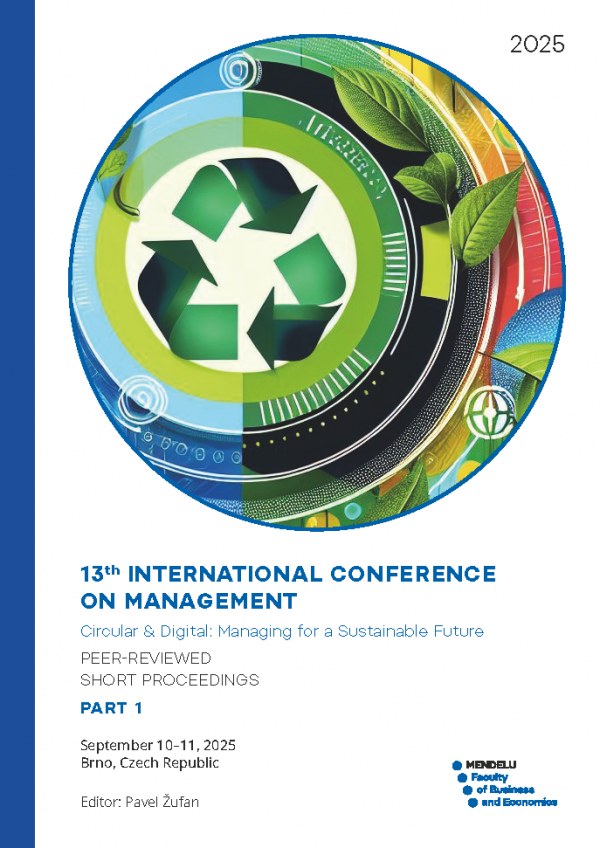
DOI: 10.11118/978-80-7701-042-9-0033
EXPLORING THE CONTRIBUTION OF ACTIVE TOURISM AND ECOTOURISM IN FORESTS TO THE SUSTAINABLE DEVELOPMENT OF LOCAL COMMUNITIES
- Ildiko Dosa1, Csaba Bálint Illés1, Péter Balogh2
- 1 Doctoral School of Management and Business Administration,John von Neumann University,Budapest, Hungary
- 2 Faculty of Economics and Business, University of Debrecen, Debrecen, Hungary
The study emphasizes that active and ecotourism in forest areas offers significant opportunities for promoting the sustainable development of local communities, particularly in regions where forestry is guided by a long-term perspective [2]. International best practices demonstrate that conscious, community-based approaches support the long-term sustainability of tourism initiatives [1, 6]. It is evident that, in the future, it will be important to reconsider legal and financial incentives at both national and EU levels to make tourism development opportunities more accessible to a wider range of forest managers. In addition, awareness-raising, knowledge transfer, and networking among local stakeholders can play a crucial role, and effective communication is essential to facilitate cooperation in all of these areas [1]. Integrating sustainable forestry and tourism into regional development strategies can provide a stable foundation for the long-term strengthening of rural areas and for retaining local populations. Future policy decisions should take into account the complex social, economic, and environmental benefits of forest-based tourism [4].
Klíčová slova: forest management, active tourism, ecotourism, regional development
stránky: 33-35, online: 2025
Reference
- Bell, S., Simpson, M., Tyrväinen, L., Sievänen, T., Pröbstl, U. (eds.). 2009. European Forest Recreation and Tourism. London and New York: Taylor and Francis. 240 p.
 Přejít k původnímu zdroji...
Přejít k původnímu zdroji... - Blaj, R. 2014. Ecotourism and nature tourism - components of a sustainable management of forests. Journal of Horticulture, Forestry and Biotechnology. 18(4), 51-54.
- Ritecz, G., Illyés, N., Péter, E. 2023. Fenntarthatóság az ökoturizmusban, trendek és kihívások. In: Németh, K., Jakab, B., Péter, E. (eds.). VII. Turizmus és Biztonság Nemzetközi Tudományos Konferencia Tanulmánykötet. Nagykanizsa: Pannon Egyetem, pp. 246-256.
- Földművelésügyi Minisztérium, Erdészeti és Vadgazdálkodási Főosztály. 2016. Nemzeti Erdőstratégia 2016-2030. Budapest: Földművelésügyi Minisztérium. https://erdo-mezo.hu/wp-content/uploads/2016/10/nemzeti_erdostrategia_2016.pdf
- Seres, P. 2024. Fókuszban az erdők és az ökoturisztika. Erdészeti lapok. 159(10), 459-461.
- Pröbstl, U., Wirth, V., Elands, B. H. M., Bell, S. 2010. Management of Recreation and Nature Based Tourism in European Forests. Springer Science & Business Media. https://doi.org/10.1007/978-3-642-03145-8
 Přejít k původnímu zdroji...
Přejít k původnímu zdroji... - Ciesielski, M., Stereńczak, K. 2018. What do we expect from forests? The European view of public demands. Journal of Environmental Management. 209, 139-151. https://doi.org/10.1016/j.jenvman.2017.12.032
 Přejít k původnímu zdroji...
Přejít k původnímu zdroji...


